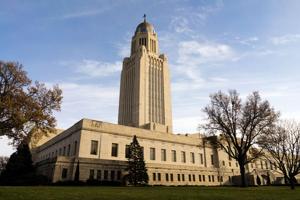Nebraska Chamber seeks legislation to shield businesses from COVID-19 liabilities, but won’t ‘protect bad actors’

(The Center Square) – When the Nebraska Legislature convenes this week, COVID-19 liability protection will have an early focus for the Nebraska Chamber of Commerce.
“We are looking at legislation to address this,” Chamber Vice President Ron Sedlacek, who is also its general counsel, told the Center Square.
He said a bill would likely come before the legislative body during the first 10 days of the session, which started on Jan. 6.
“We have not finalized our draft, but it’s getting closer and closer to finalization,” Sedlacek said. “It’s not only the Nebraska Chamber that is involved in this.”
Sedlacek said other organizations, including schools and health-care providers in addition to associations that represent businesses “are all interested in some sort of legislation that generally addresses this issue.”
At least 19 states and the District of Columbia approved legislation about COVID-19 liability, Sedlacek said, adding that some governors have also issued executive orders on protections.
“One thing is consistent — there should be no legislation that would protect bad actors,” Sedlacek said.” What we’re talking about are situations where there is gross negligence, willful misconduct, willful intent to harm, those kinds of things.”
The word “immunity” does not exist in the legislation the groups are considering, Sedlacek said.
The Nebraska legislation being drafted also does not deal with product liability claims or employer-employee relationships. Nebraska’s workers’ compensation program covers the latter, he said.
“What we are trying to do is provide a general safe harbor for those who are opening their schools and businesses and churches and all these other entities and provide some modicum of relief for those who are directly involved in [the] provision of health care,” Sedlacek said.
Premises liability is one area that the legislation will likely address, he said.
“This is for people who are opening their businesses, their places of worship, their schools to the public and are in compliance with the health-care directives,” he said. “If they’re not in compliance, we’re not trying to cover that.”
The legislation will try to balance protecting businesses and other public facilities and those will legitimate claims, Sedlacek said.
“We’ll have to see what we can come up with that is common consensus and can pass muster and that the legislature could enact into law,” he said.
Disclaimer: This content is distributed by The Center Square

